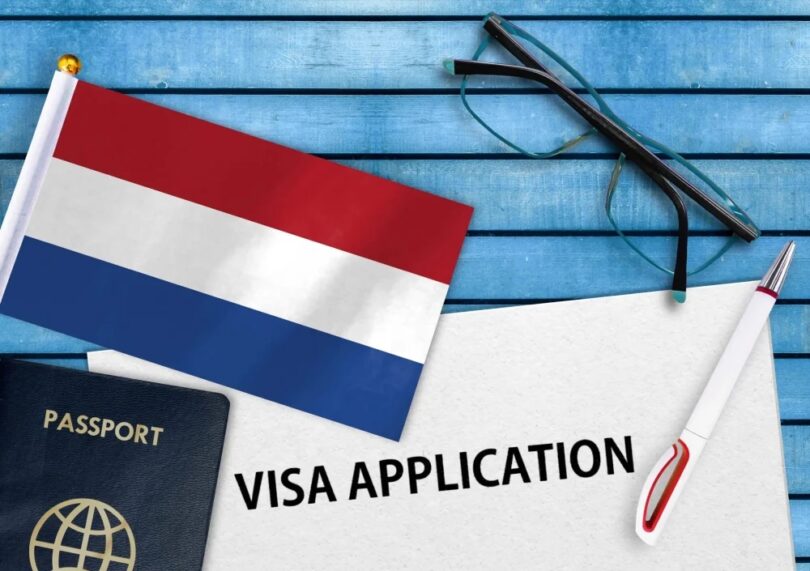This extensive manual offers everything you need to understand to start this incredible journey in 2025. We will summarize the au pair visa conditions, application procedure, prospective incomes, and what to anticipate from everyday life in the Netherlands. Whether you are looking for adventure, cultural immersion, or a special way to improve your resume, the Dutch au pair program provides an unforgettable experience.
WHAT IS A DUTCH AU PAIR VISA
The au pair visa is a residence permit particularly designed for young people who desire to settle with a Dutch host family, help with childcare and light work at home, and learn about Dutch culture and language.
ALSO SEE: How To Move To the Netherlands Without a Job 2024
This scheme facilitates cultural exchange, providing au pairs an opportunity to experience the Dutch way of life while offering assistance to a host family.
- Age range: Commonly, 18-30 years old (most agencies may approve candidates up to 25).
- Period: Typically lasts 12 months, providing a balanced experience between work and entertainment.
MAJOR CONDITIONS TO STAND QUALIFIED FOR AU PAIR VISA
To be qualified for the Au Pair visa, candidates are required to satisfy so many measures:
- Age: Between the ages of 18 and 30 (most agencies may have a lesser age cap therefore verify with your selected agency)
- Marital status: You are required to be unmarried without any kids or dependents.
- Host family: Candidates are required to settle with an enrolled Dutch host family (at least two members) that satisfies certain income conditions.
- Agency conditions: You are required to undergo an identified au pair agency in the Netherlands. The agency will take care of the visa request for you, and based on Dutch laws, self-application without the employment of an agency is not permitted.
- Financial assistance: Candidates are required to indicate they have enough finances to sponsor themselves during their visit.
- Health insurance: An extensive health insurance guideline that protects your visit to the Netherlands is compulsory.
- Language proficiency: Fundamental Dutch language skills are beneficial but only sometimes needed (this varies by agency and host family). Hence, having English skills is naturally useful, as many households choose au pairs who can interact in either English or Dutch.
- Np past Dutch residence permit: Candidates are not required to have handled an exchange visa for the Netherlands before.
CERTIFICATION REQUIREMENTS
While official certification is not compulsory, having childcare skills, such as babysitting, teaching, or volunteering with kids, boosts your request. References that authenticate this skill are usually needed.
WHERE TO BEGIN YOUR DUTCH AU PAIR EMPLOYMENT SEARCH
Below is a step-by-step manual to starting your journey as an au pair in the Netherlands:
- Discover a host family: Platforms such as AuPairWorld https://www.aupairworld.com/en Nannies overseas https://www.international-nanny.com/ GreatAuPair https://www.greataupair.com/find-au-pair-jobs/ enable you to develop a profile and link with prospective host families in the Netherlands.
- Au Pair Agencies: Browse agency webpages for households currently looking for au pairs. Agencies usually have pre-vetted households to guarantee a secure and favorable experience.
SELECT AN IDENTIFIED AGENCY
- The Dutch Immigration and Naturalization Service (IND) offers a list of identified au pair agencies. This is important as only enrolled agencies can apply for the visa on your behalf. Self-application for an au pair visa is not allowed in the Netherlands.
CHECK QUALIFICATION AND ASSEMBLE DOCUMENTS
- Authentic passport: Make sure your passport is authentic for the whole period of your visit.
- Letter of motivation or video: Clearly state your motives for wanting to be an au pair in the Netherlands.
- References: Offer references for past childcare experience or other necessary work.
- Medical credentials: Most agencies may need a health review.
APPLICATION PROCEDURE (HANDLED BY THE AGENCY)
The agency plays an important position in the application procedure, managing the following stages:
- Entry and residence process (TEV): The agency begins this process with the IND
- Visa (MVV): When the TEV is endorsed, you will get approval to get your visa (MVV) from the Dutch consulate in your home nation.
- Residence permit (VVR): After landing in the Netherlands, you will get your residence permit from the IND.
- Enrollment: You will be required to enroll with the local city where you will live in the Netherlands







